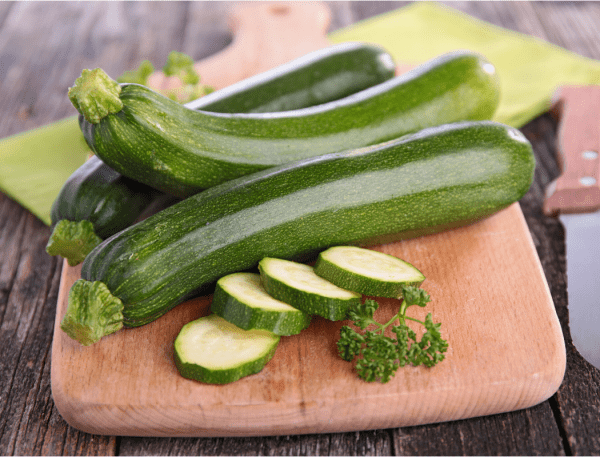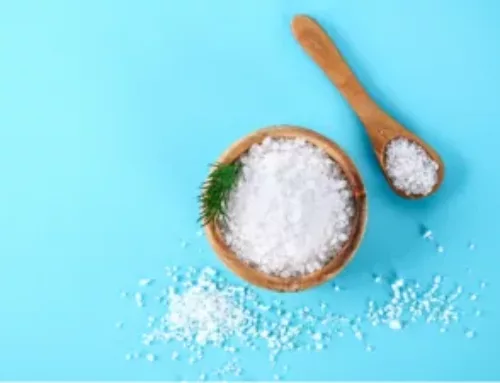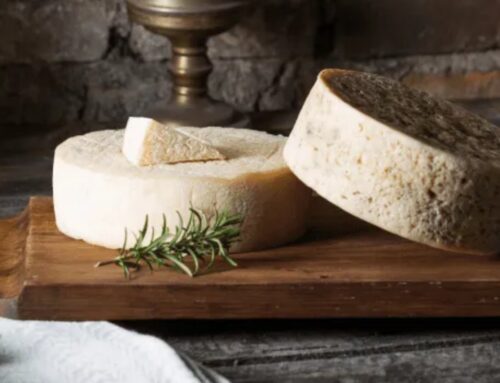While often considered a vegetable, zucchini is actually a fruit. Zucchini is part of the Cucurbitaceae family alongside cucumbers, gourds, melons, squashes and pumpkins.
Zucchini has many health benefits. Its high fiber content has been associated with significantly lower risks of developing stroke, high blood pressure and heart disease. Dietary fiber increases food volume without increasing caloric content, making you feel full which can reduce your appetite. Because zucchini is also low in carbohydrates, it helps to fill you up and discourages overeating. It may also increase insulin sensitivity and stabilize blood sugar levels, possibly reducing your risk of type 2 diabetes.
Zucchini is rich in several vitamins, minerals and other valuable plant compounds. Specifically, its abundant vitamin A content can support your vision and immune system. The vitamin A and C content can be reduced by cooking, so try adding more raw zucchini into your meals (see the list below).
Zucchini is also rich in antioxidants, which help protect your body from damage. Antioxidants have been shown to benefit eye, skin and heart health, as well as offer some protection against certain types of cancer. The highest levels of antioxidants are found in the fruit’s skin.
Because of the water and fiber found in zucchini, this fruit also promotes healthy digestion, reducing your risk of constipation and symptoms of various digestive problems.
 Here are some ways to enjoy zucchini, raw or cooked:
Here are some ways to enjoy zucchini, raw or cooked:
- Dice, julienne, shred or spiralize and add raw to salads (or try this Zoodle Salad)
- Cut into “chips” and serve with Cauliflower Hummus
- Scrape out the seeds and stuff with healthy protein or vegetables, then bake (like these Zucchini Skins)
- Sauté with other vegetables and proteins for a quick stir-fry
- Dice and add to soups
- Serve as a side, grilled or sautéed with your favorite spice blends
- Spiralize it into “zoodles” as in Zoodles and Meat Sauce or Chicken Lo Mein
- Slice lengthwise for Zucchini Lasagna
- Bake it into approved breads, pancakes or muffins (like this Zucchini Bread)
In some cultures, the zucchini flower is considered a delicacy. You can sprinkle it raw on salads, soups and stews.
Store unwashed zucchini on your counter for about 2 weeks or in a perforated or open plastic bag for up to a week in the refrigerator. You can also freeze zucchini for later use. There are a couple of ways to prepare the zucchini for the freezer. Either way, frozen zucchini lasts up to 3 months
- Shred unpeeled zucchini, drain it in a colander and then squeeze it gently to remove excess moisture. Place shredded zucchini in sealed freezer bags and freeze flat so the bags can be stacked in the freezer. Shredding is a great way to freeze if you will be making a casserole, meatballs or fritters.
- Wash the zucchini, dry well, cut it into one-inch cubes and then freeze in a single layer in freezer bags.
Have you ever thought about growing your own zucchini? Each fruit can grow to more than 3 feet in length but is usually picked when still immature, around 6-8 inches. If you leave the fruit on the vine too long, the seeds and rind harden, making it inedible. You can read more about growing your own zucchini here.
One of our most popular SHAPE-Certified recipes using zucchini is our Pizza Casserole!






